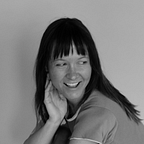Psychologists Should Learn About Psychedelics
A recent visit to the psychologist highlighted the need for a curriculum update
![]() Fluorescent lights. Plastic cups with pointed bottoms dangle from the water machine. A Top 40 hit blasts, the kind that could never be background music. It demands your full attention, consumes all senses, and shuffles all thought. There’s a flat-screen TV on the wall, but thankfully it’s off. Magazines stacked between me and other patients. Psychology Today. Frankie. LivingNow. Better Homes and Gardens. Tightly woven grey carpet. Neon flyers that read “On relationships,” “Let’s talk about drinking,” “Anger management,” and “Building emotional resilience.” A hand sanitizer pump next to the scented tissues. The soft sound of fingers on a keyboard underneath the still-blaring tune. All of it contributing to a heavy static in the air.
Fluorescent lights. Plastic cups with pointed bottoms dangle from the water machine. A Top 40 hit blasts, the kind that could never be background music. It demands your full attention, consumes all senses, and shuffles all thought. There’s a flat-screen TV on the wall, but thankfully it’s off. Magazines stacked between me and other patients. Psychology Today. Frankie. LivingNow. Better Homes and Gardens. Tightly woven grey carpet. Neon flyers that read “On relationships,” “Let’s talk about drinking,” “Anger management,” and “Building emotional resilience.” A hand sanitizer pump next to the scented tissues. The soft sound of fingers on a keyboard underneath the still-blaring tune. All of it contributing to a heavy static in the air.
I’m at Melbourne Psychology to get a full mental health assessment.
Nervous about the appointment, I drank for the first time in a while last night and took a cannabis pill on my way here. It shouldn’t be so scary to seek help, to name what’s happening in my brain, but here I sit, frantic, wondering how I could possibly reveal all that’s going on in my mind across three one-hour sessions. I repeat the words of a friend for reassurance: “The map is not the…
